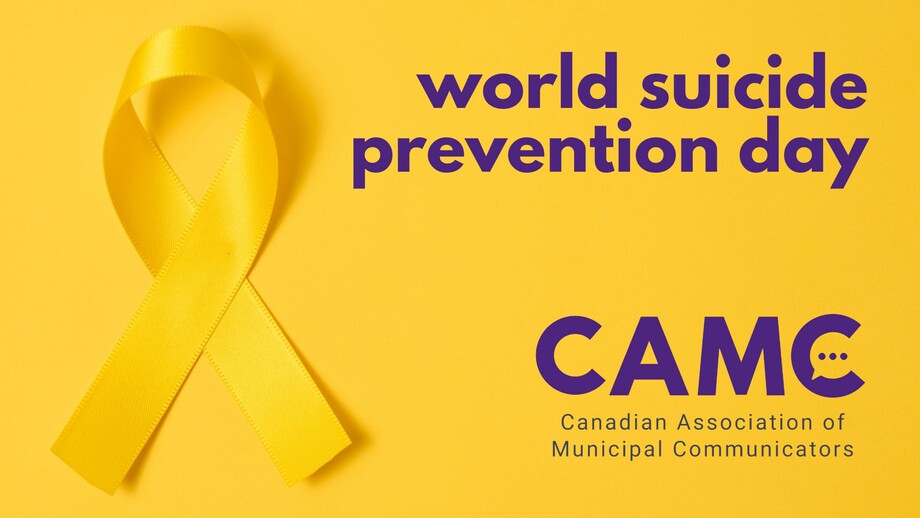Mental Health for Municipal Communicators

Today, on World Suicide Prevention Day, we want to take a moment to acknowledge the mental health struggles faced by Municipal Communicators.
It's no secret that Municipal Communicators are on the frontlines of resident anxieties and anger, often facing abuse and harassment as a first point of contact for people's frustrations with their local government.
The problem is not unique to local government, with communicators across industries feeling high levels of stress. But local government, itself, is unique, which creates its own set of mental health impacts.
Each year, the Chartered Institute of Public Relations (CIPR) and the Public Relations and Communications Association (PRCA) undertake a joint industry Mental Wellbeing Audit.
The 2023/2024 report found that:
The Canadian Association of Municipal Communicators (CAMC) is dedicated to supporting the mental health and wellbeing of CAMC Members, including advocating for improved supports throughout the industry.
- Over 90% of survey respondents reported poor mental health over the past year.
- One-third (33%) of PR professionals have been diagnosed with a mental health condition (up from 25%).
- Just about 30% of PR professionals rate their stress levels between 8-10 (with 10 being "extremely stressful").
- Communications staff have a higher risk of poor mental health than those working in other industries.
- Almost 60% said having too much work to do is the biggest barrier for taking personal time to deal with mental health concerns, and that overwhelming workload is a key stressor.
As a result of the nature of work undertaken in local government, Municipal Communicators face constant challenges that impact mental wellbeing.
At the same time, many Municipal Communicators operate as teams of one in their community, meaning that many of them also don't have colleagues working alongside them to lean on in difficult times.
In a survey conducted by the CAMC earlier this year, Municipal Communicators were asked about issues that have negatively impacted their role.
More than half of respondents cited key factors of abuse of local government officials, and around-the-clock demands. More than 40% pointed to issues of public discourse.
To address a problem, we first have to acknowledge that a problem exists.
One positive we found in the CIPR report: 60% of respondents have told someone they work with about their mental health struggles (up 9% from the previous year).
That's a good thing! We need to be able to discuss our mental health struggles openly, and to ask for help when we need it.
No stigma.
If you are struggling with your mental health, please ask for help. You are not alone and there are supports available to you.
To CAMC Members: If you are struggling with mental health as a result of your work and you don't know how to approach the issue with your superior, or where to turn to for help, please reach out: admin@thecamc.ca
We will do everything in our power to support you.
Together, we can do more.
